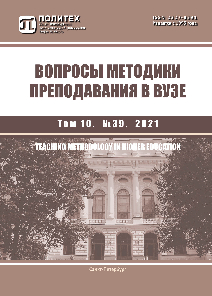Peer Review in the Foreign Speaking Skills Formation among the students of a multidisciplinary university
Current trends in modern higher education are determined by the social order. At this stage, the employer wants to get the graduate that is a professional who is able to solve problems of any complexity, show initiative and self-organization, manage the business or production process and take responsibility for its results, as well as be an effective communicator in both native and foreign languages. Therefore, the problem of the foreign communicative competence formation including those professionally-oriented characteristics that are in demand in the labour market is actual. The focus of the foreign language teacher's attention is on methods, techniques and technologies aimed at the process intensification and the result effectiveness in the foreign language training of non-linguistic students. In recent decades, research has been conducted on the use of this method in the foreign writing and speaking skills formation. The research carried out in the framework of this article allowed us to establish the peer review algorithm for working with foreign speaking skills. Similarities and differences in the algorithms of peer reviewing a letter and an oral speech product are established. The priority characteristics of this method were identified: knowledge of psychological and interpersonal problems related to the specifics of peer review; students’ awareness of the potential and pecularities of the method; collaborative work of students and teachers on methodological material; active role of an expert at the stage of mastering the method; evaluation of both the final work of the authors and the activities of reviewers; positive attitude of students to this method. As a result of the experiment, recommendations were developed for the use of this method in order to increase the effectiveness of the foreign speaking skills formation.



